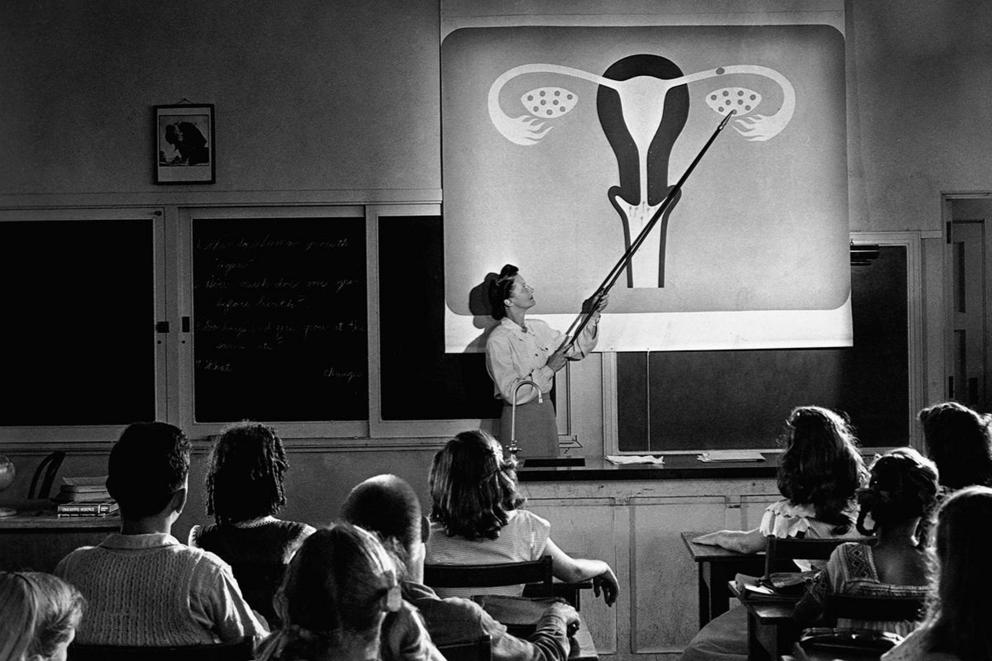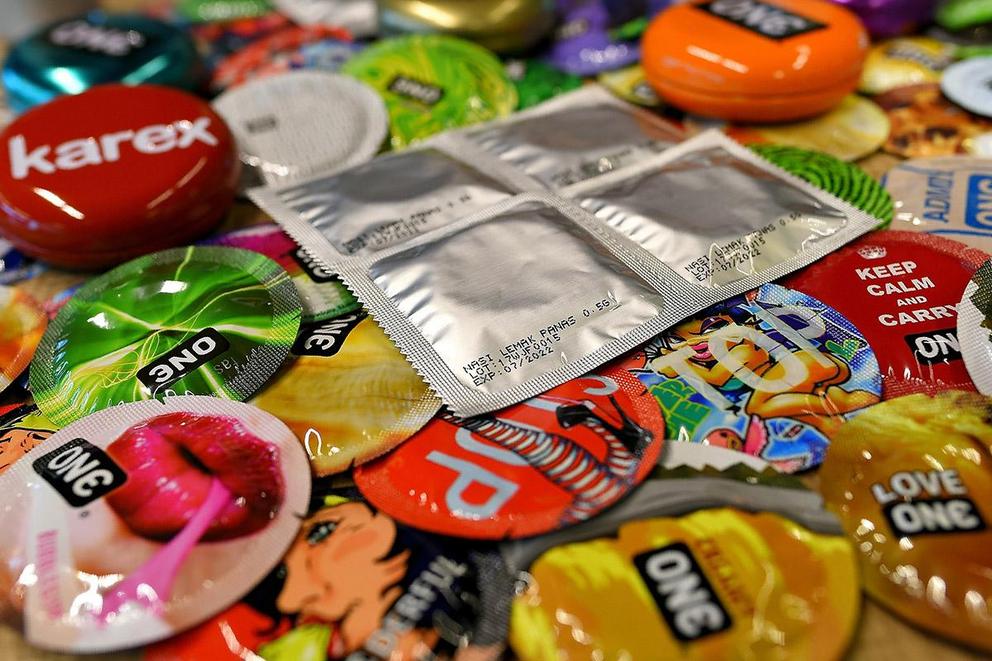Is abstinence-only education unethical? | The Tylt
Sex education varies from state to state. You may have been taught about HIV in your health class, you may have learned how to use a condom or you may have been told to wait until marriage to have sex. Some argue that educating kids with an abstinence-only approach is the safest way to ward off unplanned pregnancies and STDs. Others say abstinence-only education is not practical and kids should know how to practice safe sex—especially since they're likely to have sex no matter what you tell them.What do you think?

In 2010, the Centers for Disease Control and Prevention announced that teen birthrates in the U.S. reached historic lows. In turn, the country looked to sexual education programs and guidelines across states to identify any connection between education strategy and high or low birth rates. Unsurprisingly, states that used an abstinence-until-marriage approach were indeed the states with the highest teen birthrates.
The New York Times's Aaron Carroll outlines why abstinence-only education fails, with updated information from the Centers for Disease Control and Prevention:
First, it’s increasingly impractical. Trying to persuade people to remain abstinent until they are married is only getting harder because of social trends. The median age of Americans when they first have sex in the United States is now just under 18 years for women and just over 18 years for men. The median age of first marriage is much higher, at 26.5 years for women and 29.8 for men. This gap has increased significantly over time, and with it the prevalence of premarital sex.
In 2012, the Centers for Disease Control and Prevention conducted two meta-analyses: one on 23 abstinence programs and the other on 66 comprehensive sexual education programs. The comprehensive programs reduced sexual activity, the number of sex partners, the frequency of unprotected sexual activity, and sexually transmitted infections. They also increased the use of protection (condoms and/or hormonal contraception).
The society argues that access to sexual health information 'is a basic human right and is essential to realizing the human right to the highest attainable standard of health.' It says that abstinence-only-until-marriage education is unethical.
However, research exists that suggests abstinence-only education does work when taught during certain developmental years. CNN's Ashley Hayes reports on a 2010 study:
The study, published in the current issue of the Archives of Pediatrics & Adolescent Medicine, indicated that about one-third of the preteens and their young teen classmates who received an eight-hour abstinence lesson had sexual intercourse within two years of the class.
By comparison, more than half of the students who were taught about safe sex and condom use reported having intercourse by the two-year mark, and more than 40 percent of students who received either an eight- or 12-hour lesson incorporating both abstinence education and safe sex reported having sex at two years.
'This new study is game-changing,' the nonpartisan National Campaign to Prevent Teen and Unplanned Pregnancy said in a statement. 'For the first time, there is strong evidence that an abstinence-only intervention can help very young teens delay sex and reduce their recent sexual activity as well.'
The conclusion of the study is simple: "An abstinence-only education program is more effective than other initiatives at keeping sixth- and seventh-graders from having sex within a two-year period."
Most will agree that kids between sixth and ninth grade are too young to have sex. This study proves that before preteens reach high school, abstinence-only education is beneficial for their understanding of sex, relationships, and overall health, making this sex-ed strategy far from immoral.
Among the many health policy changes enacted by both the Obama and Trump administrations, the 2017 federal budget added funding for abstinence-until-marriage programs in schools. In July of that same year, the Department of Health and Human Services announced it would end funding for the Office of Adolescent Health’s evidence-based Teen Pregnancy Prevention, a program whose mission is to "test and evaluate new and old prevention programs based on the best available science."
These changes make clear the federal government's favor for abstinence-only sexual education, and its actions in support undeniably hurt the public. Preventing a thorough education on any aspect human health is akin to censorship. The Washington Post's John Santelli points out:
Abstinence-only now has a new name: 'sexual risk avoidance.' A new name doesn’t fix the fundamental problem. Abstinence-only programs do not prepare young people for life—and they do a poor job of preparing them to avoid sex.
The government shouldn’t be in the business of promoting an unrealistic and ineffective solution to adolescent sexual and reproductive health—particularly one that has been so overwhelmingly repudiated by health professionals and parents.
By offering comprehensive sexual education programs, which include education on abstinence, contraceptive methods, and sexually transmitted infections, students are able to make informed choices. Abstinence-until-marriage programs act as though the alternative (sex before marriage) does not exist, yet kids and teens see sex referenced in television, movies and music nonstop. Comprehensive sex-ed programs acknowledge reality; anything short perpetuates a culture of sexual shame and suppression.
However, many people argue that abstinence-until-marriage education programs encourage a values-based lifestyle. For some, it comes down to a question of religion.
Sexual education should happen both in and outside of schools; parents have a responsibility to educate their children as well. Families choosing to educate their kids according to their religious beliefs is far from unethical. According to one Christian-based organization, Focus on the Family:
Abstinence-until-marriage—and faithfulness after marriage—not only protects against sexually transmitted diseases, it gives young people a stronger platform from which to pursue their dreams and goals. It's a winning proposition!
Another reality about remaining sexually abstinent in our sex-obsessed culture is that it's tough. Kids need their parents, churches and schools to expect—and support—this healthy standard for behavior.
Parents and teachers alike should have more than enough understanding that abstinence-until-marriage is no easy task. By offering a united front for support, kids and teens will be more likely to support their own health by refraining from sex before marriage.






.jpg)



